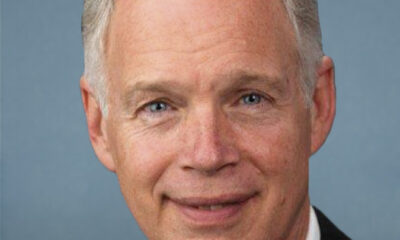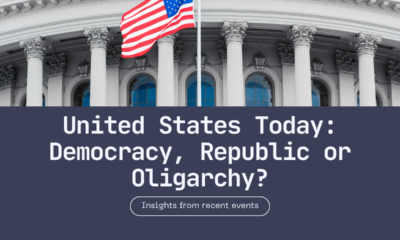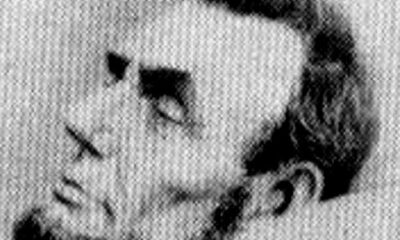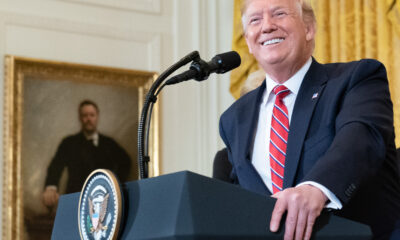Constitution
Mitch McConnell: A Republican Party Hero
Grover Norquist remembers Mitch McConnell and the many things he did in fact accomplish as a Senator and Floor Leader.
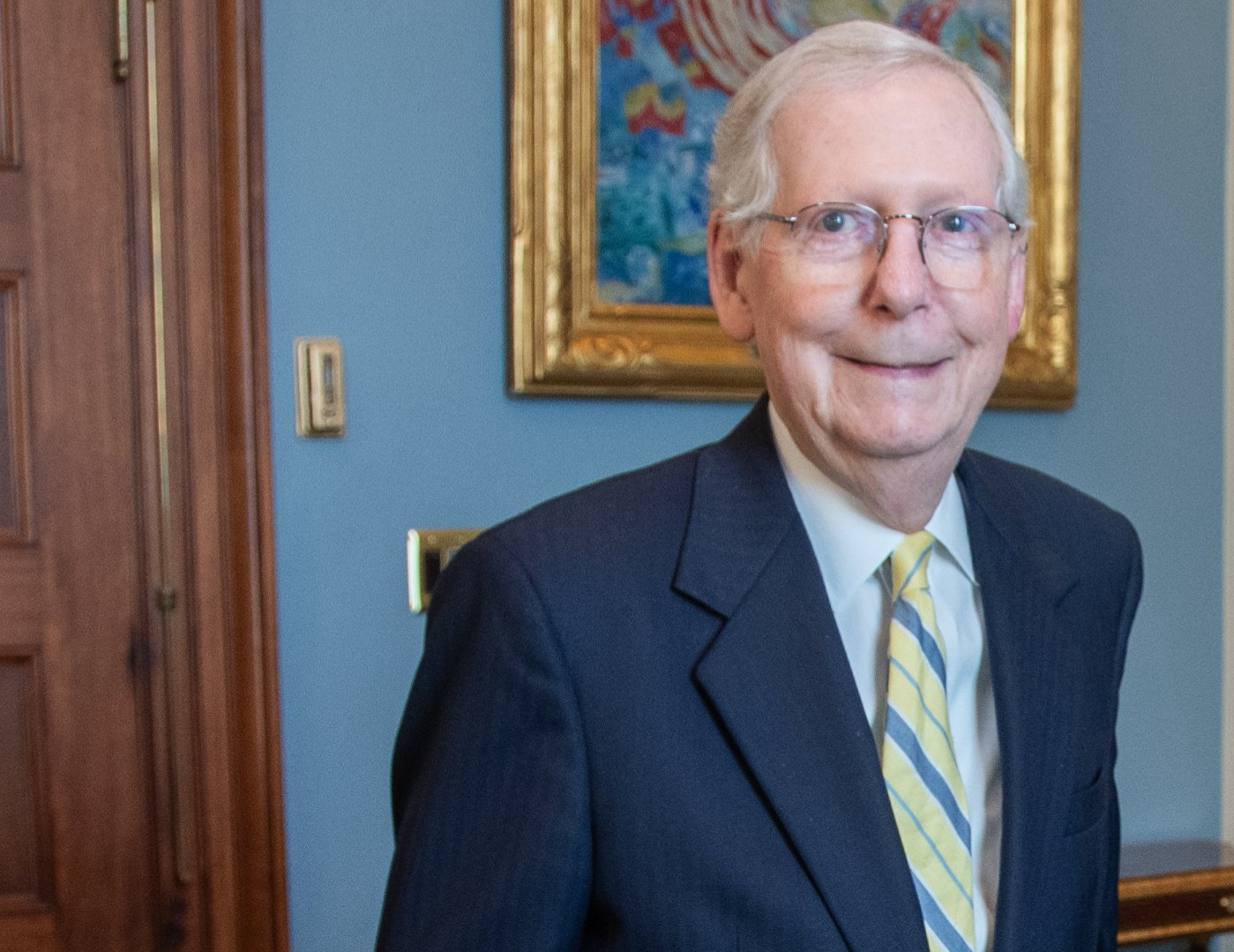
Kentucky Senator Mitch McConnell changed the direction of the world.
Few men accomplish this. He had an advantage. He was not distracted by a need to be on television. He had no desire to be praised by the American aristocracy. Or run for president. That frees up time and brain cells. He focused on what mattered. And stayed focused. Year after year.
First, he focused on the rules and who makes the rules under which all conservative initiatives and candidates would thrive or wither away. Campaign finance reform. The Filibuster. Judges. Judges. Judges.
When, as far back as the 1970s, the Democrats saw the nation slipping out of their control, they tried to change the rules. “Campaign finance reform” was a power grab advertised as reform. The establishment press invited Republican collaborators onto the weekend shows and praised them – IF they would endorse the Democrats’ “reform.” With that enticement, the Democrat power play soon became a “bipartisan” good government reform effort. The 2008 Republican candidate for president, John McCain, put his name on the Democrat legislation early on. It seemed unstoppable. Mitch McConnell stopped it.
McConnell was alone at first: opposing, delaying, weakening, and ultimately defeating the left’s multi-decade drive for “campaign finance reform” that would have restricted single-issue groups such as the pro-life and Second Amendment movements, and left the labor union bosses untroubled by such limitations.
In 1993, Bill Clinton tried to force taxpayers to pay for House and Senate campaigns. McConnell, in a solo press conference, fought back and pointed out that this amounted to “taxpayer-financed food stamps for politicians.” He added: “This issue is fraught with First Amendment implications. This is a First Amendment issue. This is about speech. If it ever passes it will be in court.”
In a 1997 solo press conference, McConnell said, “Well, of course, as Thurgood Marshall said in the Supreme Court case of Buckley v. Valeo 21 years ago, spending is speech. And so it is not permissible for the government to determine how much individuals, groups, candidates, and parties can talk in this country.”
That same year, he went over to the U.S. House and testified, demolishing the arguments put up by Democrats and some Republicans. McConnell said, “The Big Government solution is to shut us all up.”
McConnell also focused on judges. He used the filibuster to stop Obama from replacing Justice Scalia and held the appointment open for Trump. McConnell and Republicans who stood with him in the filibuster were viciously attacked for failing to put Merrick Garland on the court. Now exposed as the most partisan Attorney General in recent memory, Garland was sold by the establishment press then as a “moderate.” McConnell saw through that and was tough enough to take the arrows.
Then, after Trump’s election, McConnell worked day after day to move Trump’s judicial nominees through the process. Some whined that he didn’t hold more votes on legislation that the Democrats would filibuster. McConnell put judges on the court.
During the Bush years when Republicans had narrow majorities in the House and Senate, some serious Republicans argued that we should abolish the filibuster. McConnell helpfully (and forcefully) pointed out that someday the Democrats might have the presidency and the House, and the Senate with more than 50 but less than 60 votes.
Why is Washington, D.C., not a state? Why is the Second Amendment still standing? Why do we not have single-payer (Canadian) healthcare? A federal takeover of all 50 state elections? Or universal basic income? A ban on Right to Work? A ban on all oil, gas, and nuclear? Why are there not 15 additional Democratic precinct workers on the Supreme Court? The answer is Mitch McConnell. He protected the filibuster.
We could invent a somewhat repetitive version of Jeopardy where the answer to each question is, “Who is Mitch McConnell.”
Wisely, McConnell played the long game. Progress, winning, and maintaining ground won takes many elections, decades, and once gained, must be defended every single day into the future. The present leviathan state in Washington was built from 1932 to 1994, with federal spending growth from 4% of the economy (GDP) to more than 20%. This was possible only with the Democratic Party’s effective one-party control of Washington during these 62 years. Yes, there were periodic Republican presidents. But Congress runs the federal government.
Presidents start wars, have interesting scandals, and can delay the demands of Congress by vetoing bills that will pass after the Republican president leaves office and the Democratic congress regains untrammeled power. From 1932 to 1994, the Republicans only won Congress – the House and Senate – twice: once while Truman was president and once when Eisenhower was president. Electing a president, even one like Reagan, could not reverse that accretion of power in Washington. That can only happen with control of the House and Senate … and time.
He strengthened the Republican Party and elected other Republicans to state office. When McConnell was elected as U.S. senator from Kentucky, it was a Democrat-controlled state since forever. Party registration of voters and the state legislature were deep blue.
McConnell did what too few elected Republicans do – he worked to elect other Republicans in the state legislature and local offices. He put time and money into building and strengthening the Republican Party. Today, Kentucky has more registered Republicans than Democrats, and the Republican majorities in the House and Senate govern even when a Democrat becomes governor, as they have the votes to override periodic, annoying Democratic governors (that happens in the best of states).
The Washington establishment and its courtiers in the media were committed to three goals: maintaining control of the federal court system (especially the Supreme Court) that would drive the nation leftward no matter how many victories conservatives won, nationalizing campaign finance laws to make the union’s forced dues treasure chest all powerful, and ending the filibuster.
McConnell challenged the establishment and won. And he did it all with that smile.
This article was originally published by RealClearPolitics and made available via RealClearWire.
Grover Norquist is President of Americans for Tax Reform.
-

 Executive4 days ago
Executive4 days agoSecret Service chief gets no solace
-
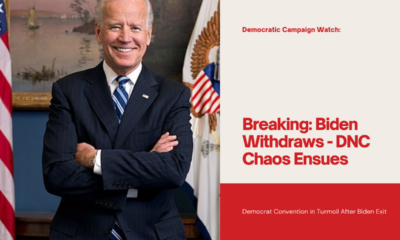
 Civilization5 days ago
Civilization5 days agoBiden drops out of race
-

 Executive2 days ago
Executive2 days agoWaste of the Day: Louisville Taxpayers Pay Nearly $600,000 For Empty Building’s Maintenance, Security
-

 Guest Columns4 days ago
Guest Columns4 days agoFear Itself: Democrats’ Favorite Strategy Caused Their Current Chaos
-

 Executive3 days ago
Executive3 days agoWhere is Joe Biden – or Jill?
-

 Executive1 day ago
Executive1 day agoWaste of the Day: Throwback Thursday: Cities Used Crime Prevention Funds on Soccer Games, Paper Shredding
-

 Civilization4 days ago
Civilization4 days agoBuild Iron Dome in the United States To Prepare for Israel’s Worst Day
-

 Executive2 days ago
Executive2 days agoFacile and politically motivated suggestions



